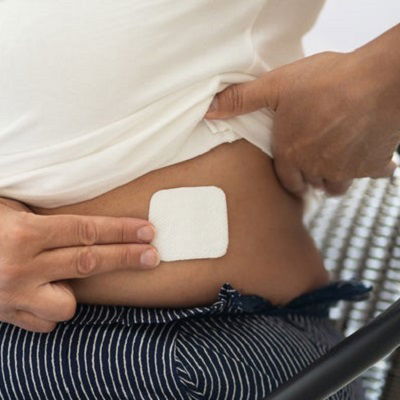Why Phytoestrogens Cannot Replace Hormone Replacement Therapy
When it comes to managing menopause symptoms and hormonal imbalances, many women seek the Best Hormone Replacement Therapy Oman to restore their well-being. While some turn to natural alternatives like phytoestrogens, it's essential to understand that these plant-based compounds do not provide the same effectiveness as conventional hormone replacement therapy (HRT). Although phytoestrogens mimic estrogen in the body, they lack the potency and consistency required to address severe hormonal deficiencies. This article explores why phytoestrogens fall short compared to medically supervised HRT.

Understanding Phytoestrogens and Their Role
What Are Phytoestrogens?
Phytoestrogens are naturally occurring compounds found in certain plants, including soy, flaxseeds, and legumes. These substances have a chemical structure similar to estrogen and can bind to estrogen receptors in the body. However, their effects are significantly weaker than the hormones produced by the body or administered through HRT.
How Do Phytoestrogens Work?
Phytoestrogens function by either mimicking estrogen or blocking stronger estrogenic activity, depending on the body’s hormonal levels. While this dual function may provide mild relief from symptoms like hot flashes and mood swings, it does not offer a reliable or consistent solution for women experiencing severe estrogen depletion.
Why Phytoestrogens Are Not a Substitute for HRT
1. Lower Potency Compared to HRT
One of the primary reasons phytoestrogens cannot replace the best hormone replacement therapy in Oman is their significantly lower potency. The estrogenic activity of phytoestrogens is weak compared to pharmaceutical-grade hormones used in HRT, making them ineffective for treating conditions like osteoporosis, vaginal atrophy, and severe menopausal symptoms.
2. Inconsistent Absorption and Effectiveness
Unlike HRT, which delivers a controlled and consistent dose of hormones, phytoestrogen absorption varies based on an individual’s gut microbiome, diet, and metabolism. This inconsistency makes it difficult to achieve predictable symptom relief, unlike medically supervised hormone therapy.
3. Limited Impact on Bone and Cardiovascular Health
HRT has been proven to support bone density and reduce the risk of osteoporosis, a condition that affects many postmenopausal women. Phytoestrogens, on the other hand, do not offer the same level of protection, leaving women at risk of fractures and bone deterioration. Similarly, while HRT can improve cardiovascular health by maintaining healthy cholester
4. Not Effective for Severe Menopausal Symptoms
Women experiencing intense hot flashes, night sweats, mood swings, and vaginal dryness often require a strong hormonal intervention. While some mild menopausal symptoms may see minor improvements with phytoestrogens, they are not potent enough to address more severe symptoms that significantly impact quality of life.
5. Individual Response Varies Greatly
Another critical limitation of phytoestrogens is their unpredictable effect on different individuals. Some women may experience slight relief, while others notice no improvement at all. This inconsistency makes them an unreliable choice for those seeking guaranteed relief from menopausal discomfort.
The Superiority of Medically Supervised HRT
1. Customizable Treatment Plans
Unlike phytoestrogens, which offer a one-size-fits-all approach, the best hormone replacement therapy in Oman is tailored to meet individual needs. With options like bioidentical hormone therapy, women receive customized dosages that align with their hormonal deficiencies, ensuring optimal results.
2. Scientifically Proven Benefits
HRT is backed by extensive medical research confirming its effectiveness in relieving menopausal symptoms, preventing osteoporosis, and supporting heart health. Phytoestrogens, while natural, lack the same level of scientific validation and regulatory oversight.
3. Fast and Reliable Symptom Relief
Unlike phytoestrogens, which may take weeks or even months to show minimal effects, HRT provides noticeable symptom relief within days to weeks. This rapid improvement allows women to regain control over their well-being much more effectively.
4. Wide Range of Treatment Options
With HRT, women have access to various administration methods, including pills, patches, gels, and creams. This flexibility allows them to choose a method that best suits their lifestyle and medical needs. Phytoestrogens, in contrast, are primarily available through dietary sources and supplements, which may not be absorbed efficiently.
5. Long-Term Health Benefits
In addition to alleviating menopausal symptoms, HRT provides long-term health advantages, such as protecting cognitive function, reducing the risk of Alzheimer's disease, and enhancing skin elasticity. Phytoestrogens do not offer these extended benefits in the same capacity.
Debunking Myths About Phytoestrogens
Myth 1: Phytoestrogens Are as Effective as HRT
While some people believe that consuming soy-based products or herbal supplements can replace HRT, the reality is that phytoestrogens do not provide the same strength or stability as medically prescribed hormone therapy.
Myth 2: Phytoestrogens Are Completely Safe for Everyone
Although natural, phytoestrogens may still interact with medications, affect thyroid function, and influence hormone-sensitive conditions. Consulting a healthcare professional before using them is essential.
Myth 3: HRT Is Riskier Than Phytoestrogens
Modern HRT treatments have been refined to minimize risks, offering safe and effective solutions under medical supervision. Meanwhile, the unregulated nature of many phytoestrogen supplements means their long-term effects remain uncertain.
Choosing the Right Solution for Hormonal Balance
For women experiencing menopause or hormonal imbalances, relying solely on phytoestrogens may not provide the relief they need. Opting for the best hormone replacement therapy in Oman ensures a medically supervised approach tailored to individual needs, delivering consistent and effective results. While incorporating phytoestrogen-rich foods into a balanced diet may offer mild support, they should not be considered a replacement for professional hormone therapy. Always consult a healthcare provider to determine the most suitable treatment plan for optimal health and well-being.
